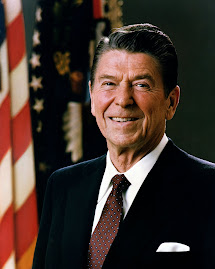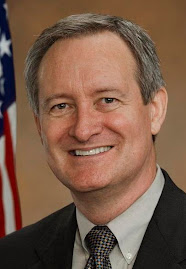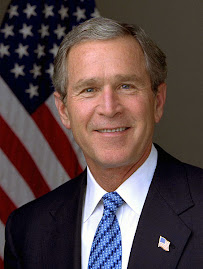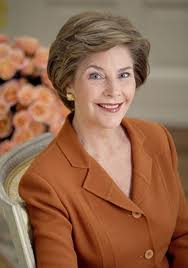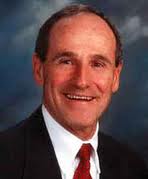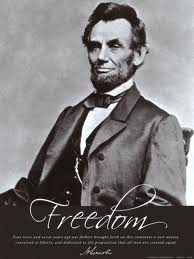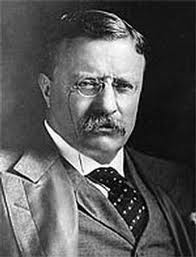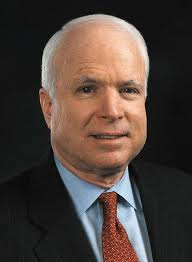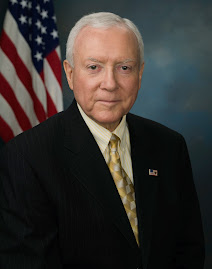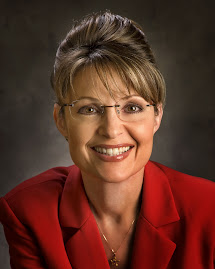When thinking of politics and the root of the words realism and idealism, which sounds more usable in relation to international and domestic policy. Sure, ideally we would love to have every citizen be happy and content with each policy decision and each country we interact with agree with and adhere to alliances and sanctions that are agreed upon however... the world is not ideal. The real story is that each country and each citizen within that country act rationally according to their personal disposition and belief. There is no way in anyone's mind that those beliefs are going to match up and although there is a strong correlation between the belief system for the larger mass of citizens there are still differences that (as we have seen over the past decade) can escalate into culture wars and sometimes lead to civil wars. It is imperative to understand that realism is the dominant theory that is applied to politics in this sense and the reasoning is logical. Although most politicians and institutions will use euphemisms to describe hot topics or controversial issues, behind the smoke screen is a very realistic point of view and if we dig deeper almost everyone (excluding the outliers or extremists on both sides) has the same goal in mind the means to that end are the differences.
If every nation viewed the world ideally, there would be very little cooperation because it would be chaotic to try to comprehend why those from other nations are acting irrationally according to our personal perception of them and vice versa. Idealism is a theory that NGO's use to try to gain influence and power because it "sounds" acceptable and less harsh but in reality, the world is a harsh place and it comes down to those who have the power and those who do not. The G-20 make most of the world economic policy decisions because they have the resources to provide for their personal benefit which typically benefits other nations as well but countries are always looking out for number 1 because they have to. That is key to survival and that is why idealism as a theory, would never work in a worldwide arena. There are too many opposing views and beliefs that come into play, hence realism dominates.
This is something that has been on my mind over the past week or so as different news headlines have been debated and topics in class have circled these very issues. I hope you can make a rational decision for yourselves after researching further what has been stated in this particular post.
Tuesday, September 28, 2010
Tuesday, September 21, 2010
Liberty, Democracy, and Security
There are strong correlations between liberty and democracy since the rise of the United States of America shortly after the Revolutionary war. In an article by Russel Bova called "Democracy and Liberty: Cultural Connection" various relationships are pointed out but one struck me more than the others. He pointed out that culture and the institution are key indicators of how well democracy and therefore liberty will work and be successful. Most of the countries that are successful in democracy and oftentimes liberty are Western or have a high Western influence. These countries have strong ties to national security and have expanded to international security through the past century. Although the concept of democracy and human rights have been introduced into Latin America, Eastern Europe, and Africa, some of the countries have not had success in this endeavor. The question is why? In several Eastern European and Latin American countries, the poor human rights were changed quickly and they have been able to have continuous success in the push toward liberty. Africa is a different case; many of these countries have been unable to break away from traditional institutions and have struggled with human rights laws along with security of their people. It is my personal opinion that quality of life can be changed if given enough time and enough support. It is pointed out within Bova's article that both Hong Kong and Singapore were influenced by the United Kingdom and yet Hong Kong has a better economy and significantly better human rights laws. Singapore has struggled and the main reason is the influence of economic strength from the UK to Hong Kong (who was a much more dependent nation at the time) and the lack thereof in Singapore (a much more independent country). The amount of influence and the amount of time given to change is key and I believe that this is a value often forgotten in foreign policy. The United States is a democracy and although liberties have been given up for security at times in history, the country is safe. We have the freedoms that other nations have sacrificed their lives for and still have not secured. Total security and total liberty are not both possible within a democracy. There is a fragile line between the two and depending on events, some security must be given up to secure rights and liberties and vice versa. This is important to remember about history. Let us not repeat the same mistakes that led to terrible struggles and even wars.
Sunday, September 12, 2010
Belated Tribute
I love this country. I love the men who fought to create this country. I love the men and women who continue to fight to preserve our lives, liberty, and happiness in this country.
God bless America and God bless those that passed on during or as a result of the September 11, 2001 attacks on the World Trade Center 9 years ago. God bless the families of those that passed on and God bless those that survived and are alive today to proudly represent resilient patriotism and nationalism.
Behold, Our National Anthem:
Oh, say! can you see by the dawn's early light
What so proudly we hailed at the twilight's last gleaming;
Whose broadstripes and bright stars, through the perilous fight,
O'er the ramparts we watched were so gallantly streaming?
And the rocket's red glare, the bombs bursting in air,
Gave proof through the night that our flag was still there:
Oh, say! does that star-spangled banner yet wave
O'er the land of the free and the home of the brave?
And this be our motto: "In God is our trust":
And the star-spangled banner in triumph shall wave
O'er the land of the free and the home of the brave.
God Bless this country and all it's citizens, may it forever be a pillar of Democracy and freedom.
God bless America and God bless those that passed on during or as a result of the September 11, 2001 attacks on the World Trade Center 9 years ago. God bless the families of those that passed on and God bless those that survived and are alive today to proudly represent resilient patriotism and nationalism.
Behold, Our National Anthem:
Oh, say! can you see by the dawn's early light
What so proudly we hailed at the twilight's last gleaming;
Whose broad
O'er the ramparts we watched were so gallantly streaming?
And the rocket's red glare, the bombs bursting in air,
Gave proof through the night that our flag was still there:
Oh, say! does that star-spangled banner yet wave
O'er the land of the free and the home of the brave?
And this be our motto: "In God is our trust":
And the star-spangled banner in triumph shall wave
O'er the land of the free and the home of the brave.
God Bless this country and all it's citizens, may it forever be a pillar of Democracy and freedom.
Monday, September 6, 2010
Electoral College
Many people have heard of the electoral college, but what is it? What is the purpose? Why is it used?
These are all questions I hope to answer and share my opinion of the reason why we do not have a direct election for the most important position in the Federal Government.
A lot of this information is readily available on the archives website for the United States Government by the way so I would definitely research for yourself.
The Electoral College is written into the Constitution by the Founding Fathers to assure fairness in voting for the President of the United States. It is a process by which the citizens of the country elect the electors and the electors then vote in the General Election. The system can be somewhat biased however, if 51% of the electors vote for on nominee and 49% cast their ballot for the opposing nominee, the individual who scraped 51% takes all the votes in all states except Nebraska who splits the votes according to percent.
Each state is allotted the same number of electors as they have in both houses of congress. Obviously this changes from year to year but population rarely changes in states enough to change the apportionment in congress so as we know California, Texas, and New York have large amounts of influence.
I would like to know how this is perceived as fair. If a candidate is able to get 49% of the votes, he should be allotted those votes in the final count. Nebraska is the ONLY state that does this and it seems that they understand equality in voting and the importance of each vote mattering and being counted. Why then are hundreds of votes thrown out each year to produce results that are less than fair according to vote itself. By just looking at the 3 big states mentioned previously (California: Obama-61 McCain-37, Texas: Obama-44 McCain-56, and New York: Obama-62 McCain-37*) would have changed the winning number from a landslide to closer race than originally thought. Indiana for example sent all 11 of the electoral votes to Obama despite the fact that he only received 50% of those with McCain receiving 49%. Does that seem fair? No, it does not and I would suggest more research be done on the effects of the Electoral College to possibly make changes or adopt Nebraska's model.
*This numbers were from the NPR website on the 2008 electoral map page.
These are all questions I hope to answer and share my opinion of the reason why we do not have a direct election for the most important position in the Federal Government.
A lot of this information is readily available on the archives website for the United States Government by the way so I would definitely research for yourself.
The Electoral College is written into the Constitution by the Founding Fathers to assure fairness in voting for the President of the United States. It is a process by which the citizens of the country elect the electors and the electors then vote in the General Election. The system can be somewhat biased however, if 51% of the electors vote for on nominee and 49% cast their ballot for the opposing nominee, the individual who scraped 51% takes all the votes in all states except Nebraska who splits the votes according to percent.
Each state is allotted the same number of electors as they have in both houses of congress. Obviously this changes from year to year but population rarely changes in states enough to change the apportionment in congress so as we know California, Texas, and New York have large amounts of influence.
I would like to know how this is perceived as fair. If a candidate is able to get 49% of the votes, he should be allotted those votes in the final count. Nebraska is the ONLY state that does this and it seems that they understand equality in voting and the importance of each vote mattering and being counted. Why then are hundreds of votes thrown out each year to produce results that are less than fair according to vote itself. By just looking at the 3 big states mentioned previously (California: Obama-61 McCain-37, Texas: Obama-44 McCain-56, and New York: Obama-62 McCain-37*) would have changed the winning number from a landslide to closer race than originally thought. Indiana for example sent all 11 of the electoral votes to Obama despite the fact that he only received 50% of those with McCain receiving 49%. Does that seem fair? No, it does not and I would suggest more research be done on the effects of the Electoral College to possibly make changes or adopt Nebraska's model.
*This numbers were from the NPR website on the 2008 electoral map page.
Subscribe to:
Comments (Atom)

